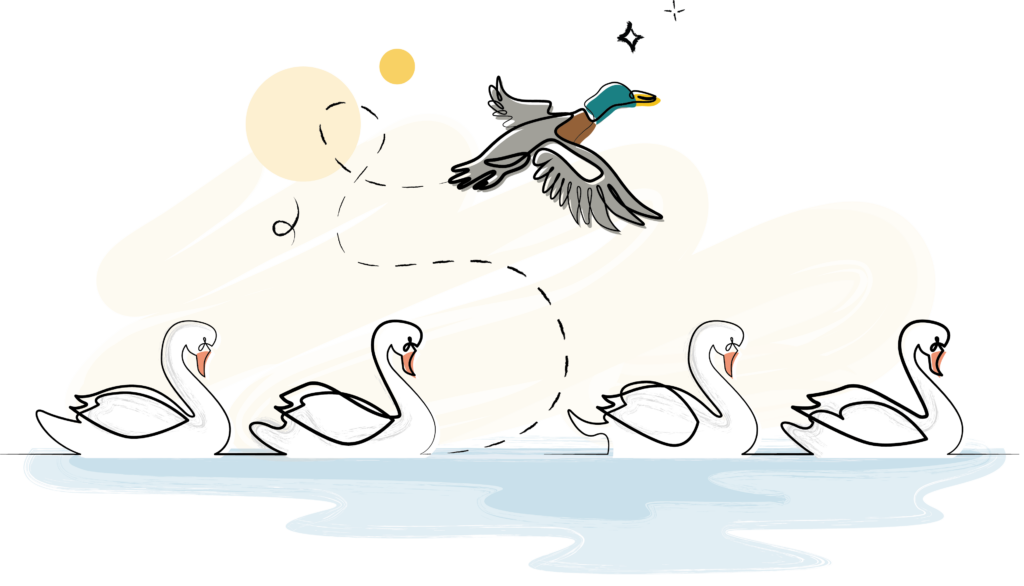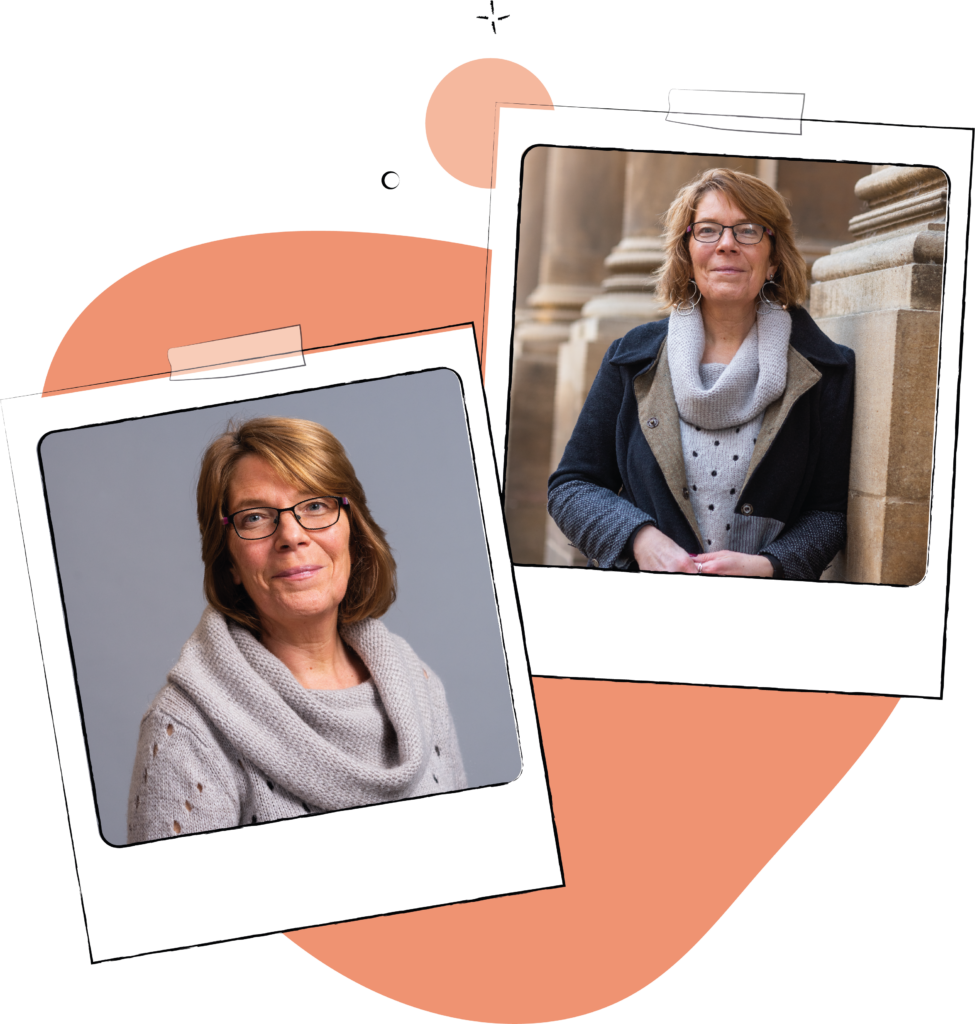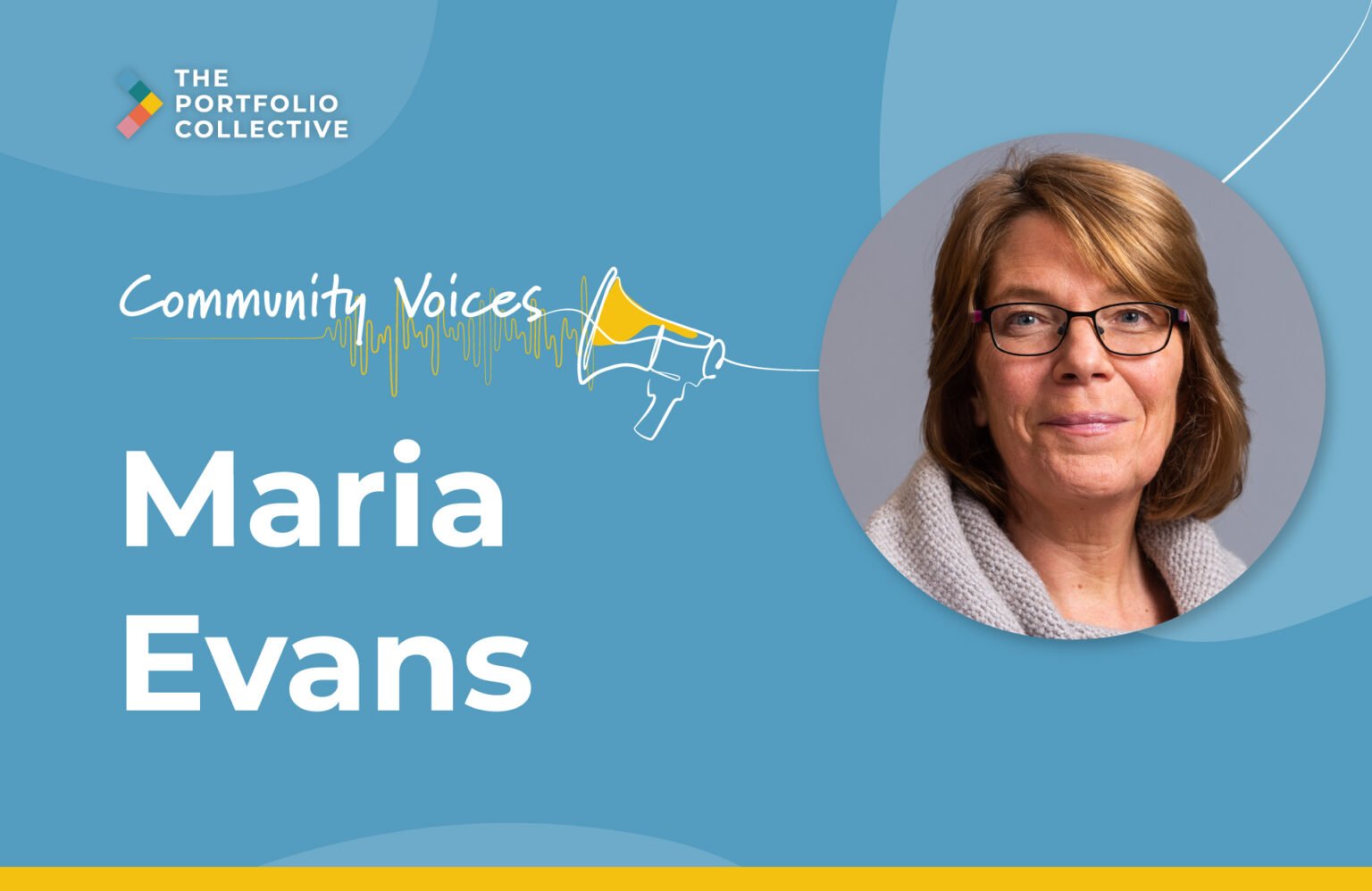TPC Team
For much of her professional life, Maria Evans was determined to project a swan-like air of composure. She didn’t want the cracks to show; she was afraid of what would happen if her messy underbelly was exposed.
But what she learned, through years of hiding her flaws beneath the surface, was that perfectionism is toxic. It’s the tinder for a blazing burnout – and why shouldn’t we embrace the messy ducks that we are?
Now, she’s dedicated her career to researching, coaching and mentoring women who struggle with a lack of self-confidence and feelings of imperfection, helping to build more diverse and inclusive workplaces.
We sat down with Maria to find out what inspired her to shape her life around her passions and how that evolved into an astonishing (and often messy) portfolio career.
Can you tell us a bit about your portfolio career? What does that look like?
I’ve had a portfolio career for about four years now. I have my PhD, but I also do coaching as well as some training and research in the fields of theatre education. My coaching is very focused on working with and empowering women.
That sounds fascinating – we’d love to hear more about the work you do with women. When did you realise that you wanted to make that a focal point of your career?
That was very much a result of the pandemic. At the time, I was invited by a company, sadly, to help with some redundancy coaching. It became obvious to me quite early on that redundancy seemed to be hitting women much harder than men. It was really knocking their confidence.
From my experience, women’s confidence is already quite shaky. This was February or March 2021 and we were starting to realise that COVID was disproportionately affecting women financially, as well as emotionally. So I set up an online programme called Take Control Tuesdays just for women, which I opened up for free.
It was half an hour every Tuesday morning and I ran it for about eight weeks. What was really obvious was how much confidence and imposter syndrome were coming up. These women were their own harshest critics, saying things to themselves in their heads they would never say to anybody else. I knew what that felt like.
I used to be a real perfectionist, struggling to settle for good enough. I’ve written a lot about trying to come across as a swan, where everything is under control and everything is calm, but actually beneath the surface I was paddling furiously. That led to a few burnouts. So I became more and more passionate about supporting women to help them work through these negative behaviours and show up more in the workplace.

The thing that drives me more than anything else is a passion for gender equality. We know that workplaces that are more gender equal tend to do much better on all measures, including financially. It’s really important that women are helped to overcome confidence barriers so that we get more equal representation in the workplace.
That’s definitely something a lot of women in our community struggle with. All women, in fact. So it’s very important to be having these conversations and encouraging these changes across the board. I know that you’re particularly passionate about that side of your portfolio career, but what would you say is the most rewarding aspect of what you do?
There are a lot of things, really. But I recently rewrote my values as part of the Catapult course and I realised that making a difference is really important to me and my work. The thing that I love more than anything else is working with people in a coaching and mentoring capacity.
When my clients come back and say that I made a difference, I get a real sense of achievement. I love that.
You also completed our personal branding masterclass quite recently. Do you mind sharing your story and your Why statement?
The branding masterclass really helped me. I’ve been working on my story and my Why statement on and off for 12-14 months and trying lots of variations. I had come up with some ideas that weren’t quite fully formed. But working through that in TPC’s masterclass really helped me develop my story.
I spent most of my youth trying to project an image of the person I thought I needed to be in order to progress in my career. I was trying very hard to keep my personal life out of my professional life, which was much easier in my 20s and 30s. But as soon as I hit motherhood – and then hit menopause – it became much harder to keep the messiness of my life out of sight.
That left me feeling incredibly disconnected and ultimately led to burnout. I now feel it’s really important that I share the difficulties of how I got where I am in order to ensure fewer people experience those difficulties themselves. I want to be very open about how hard that was and celebrate the fact that it’s much more acceptable now to be vulnerable. We should be more open about the things we find hard – whether that’s at work or in our private lives.
So this image of the swan is a really powerful one. I no longer want to be somebody who tries to keep the furious paddling out of sight. I don’t want to be seen as someone who just calmly glides through life. That projection of myself came at an enormous personal cost. So my whole story is about rejecting the swan – rejecting perfectionism – and being a messy duck that talks about the stuff you don’t always see beneath the surface in the hope that others realise it’s acceptable for them too.
I want to help women move from self doubt to self confidence so they can have the best careers and we can achieve genuine equality, diversity and inclusion in the workplace.
We’re often taught that we need to hide our messiness, but I love this idea that we should wear it like a badge of honour. I think a lot of people can relate to that. Looking beyond what you’re doing now, is there something you’d like to explore more in the future as part of your portfolio career?
I have two goals for the next phase of work. One is around supporting women to carry on working successfully through menopause. This comes out of my own experience. I want to help women readjust to the different dynamics and rhythms of life whilst still working successfully. There’s still great potential – and I love this new term – in ‘Queenagers’.
Women in their mid-40s and onward are one of the most important growing demographics in the workplace. At the moment, when women hit menopause, one in ten end up leaving work. I want to use coaching and mentoring to help these women adapt and cope with the emotional changes.
The other area I’m focusing on, along with some other TPC coaches, is mental fitness. I want to help people recognise how self-sabotage holds them back and develop strategies for a calmer, kinder, more productive way of living and working. I’ll be launching a group programme for this in the Autumn – so watch this space!
That’s so amazing and it sounds like you really have your niche figured out. What advice would you give to someone who is looking to start a portfolio career or shift their focus?
One of the things I’ve struggled with and have now become better at is this idea of ‘context switching’, which is actually a term I first came across at a Portfolio Collective event. It took me a long time to realise that my most stressful days were the ones where I was running from a meeting about research to a coaching session, all whilst trying to set up training resources.

Now, I colour code my diary and block out certain days to focus on a particular element. That way, I can fully enter the mindset of that work rather than jumping from one context to another. It’s not always easy, especially when you’re trying to say yes to meetings.
When you’re first starting out, you want to be flexible. But I was being too flexible, and by being far more proactive with my diary, I stopped giving away all my time. So my advice would be to set aside an entire day – or even just a half day – to really focus on one aspect of your portfolio career. That made such a difference for me.
Inspired by Maria’s story? So are we! It’s a brilliant example of how you can find focus in your passions and define a truly unique career. It all starts with figuring out what drives you and learning to embrace the fact that nothing is perfect. It’s okay to be messy – and it’s okay to be open about your faults.
If you’d like to meet more inspiring professionals who are forging their own career paths, then join our community and start engaging with our members. You never know what you might discover about yourself or your potential.
Think this sounds like the right path for you? Come along to our monthly Community Welcome Call for new members to find out what a portfolio career could look like and how The Portfolio Collective can help you take those first steps towards professional success – and don’t forget to connect with our community!





2 responses to “Elegant swans and messy ducks: Maria Evans’ story”
Beautiful … and about time that Maria started turning up the volume on her story! … this article and your embedded video now become a FANTASTIC asset for you to leverage Maria to get the message out. Very exciting.
Thank you @mariaevans for sharing your story with us!